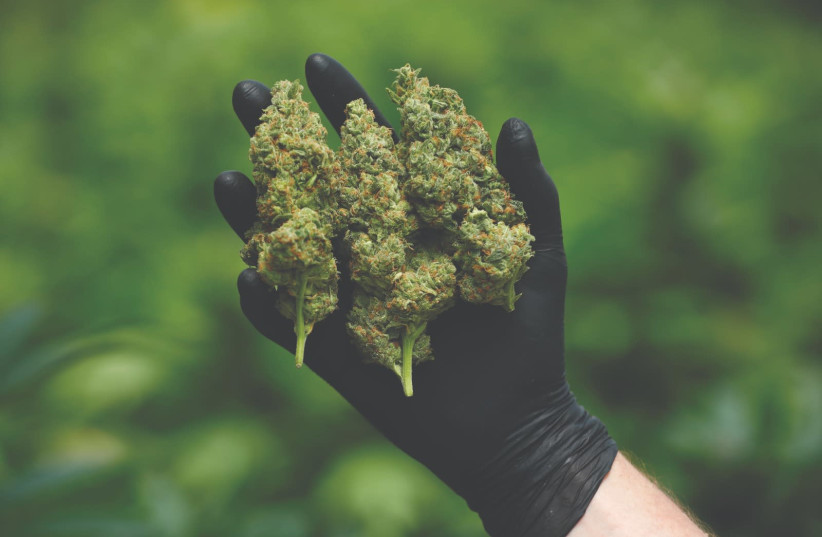Marijuana use is often associated with laziness and a lack of motivation, but here's the blunt truth: Using cannabis does not make you lazy and unmotivated, a new study has shown.
The findings of this study, published in the peer-reviewed academic periodical The International Journal of Neuropsychopharmacology, help bust the "lazy stoner" stereotype that has become so pervasive in pop culture.
<br>The lazy stoner: Does smoking weed make you unmotivated and apathetic?
Cannabis is by far one of the most popular and widespread controlled substances around the world, surpassed only by nicotine and alcohol, and its use has only continued to become more widespread in recent years.
However, the use of marijuana has long been associated with laziness, a lack of motivation, apathy and anhedonia - an inability to feel pleasure.

This itself is also related to another common and more general fear about marijuana - that it can adversely impact the brain, especially the brain development of adolescents.
These fears are nothing new, though they are far more recent than the recreational use of marijuana.
Cannabis has a long history around the world, having been part of cultures throughout history, either as a pharmaceutical substance, recreational fun, or for use in products like paper and rope. In the US, for example, cannabis was grown since the 1600s and was prevalent throughout the country for hundreds of years.
But the fears of how cannabis use could affect the brain first started to seriously emerge in the 1930s per the efforts of Harry Anslinger, the first head of the Federal Bureau of Narcotics, now known as the Drug Enforcement Agency.
Anslinger raised awareness of the dangers of cannabis use and how it could impact the brain, including the possibility of it causing insanity, laziness and apathy.
"Marihuana [marijuana] is a shortcut to the insane asylum. Smoke marihuana cigarettes for a month and what was once your brain will be nothing but a storehouse of horrid specters," he said as part of his campaign.
"Marihuana [marijuana] is a short cut to the insane asylum. Smoke marihuana cigarettes for a month and what was once your brain will be nothing but a storehouse of horrid specters."
Harry Anslinger
However, the integrity of Anslinger's claims was doubted from the start, and it is widely recognized that many of his claims were rooted in racism rather than factual scientific backing.
But regardless, the idea of marijuana being able to produce apathy and make you lazy and unmotivated has persisted in modern society for decades.
But over the years, many studies have come out contradicting many of these myths about marijuana use.
Indeed, marijuana has become more widely accepted both as a form of medicine and as a recreational substance all over the world.
But what about the lazy stoner stereotype? Is there any kernel of truth to the idea that people who smoke weed are lazier and less motivated?
That is what this study sought to answer.

Blazing a path to the truth: Getting high doesn't mean highly unmotivated
A joint research effort was made by scientists from the UK as part of the broader CannTEEN study. In particular, the study focused on seeing if cannabis users had greater apathy and anhedonia.
To do this, the researchers put together a group of 274 adults and teenagers who had used cannabis on a weekly basis over the past three months. On average, the participants used marijuana on an average of four days per week. Each of these participants were then matched with a control group of the same age and sex but who didn't use marijuana.
This is significant, as this is the first study to compare teenagers and adults who use marijuana.
From there, both groups were tested for anhedonia and apathy through thorough questionnaires.
If the lazy stoner stereotype was true, then the cannabis users would have higher levels of apathy and anhedonia than the control group, meaning they would be less motivated and less interested in rewards. This was what the researchers had hypothesized.
But that wasn't the case. Rather, levels of apathy were more or less the same between cannabis users and the control group, and cannabis users actually had slightly lower levels of anhedonia than the control group.
So, does weed make you lazy and unmotivated?
The study seems to indicate that it doesn't, but the facts are a bit more complicated.
There are a number of other factors that could be at play here to explain in greater detail the link between cannabis and a lack of motivation and perceived laziness.
For example, one study from 2017 noted that a link between cannabis use and anhedonia did exist, but it wasn't that cannabis use caused it. Rather, it was the other way around: Anhedonia positively predicted the use of cannabis.
It is also true that cannabis may still have an effect on apathy and anhedonia by virtue of other effects and interactions that it can have on the brain, such as how it interacts with depression.
Another possibility that the researchers proposed was that the cannabis users in the study tried to appear more motivated, due to being aware of the stigma of the lazy stoner stereotype.
Overall, more research is needed to better understand exactly how cannabis use affects its users. But regardless, the findings of this study further add to an ever-growing pool of research debunking many of the misconceptions about marijuana that have been pervasive for nearly a century.
